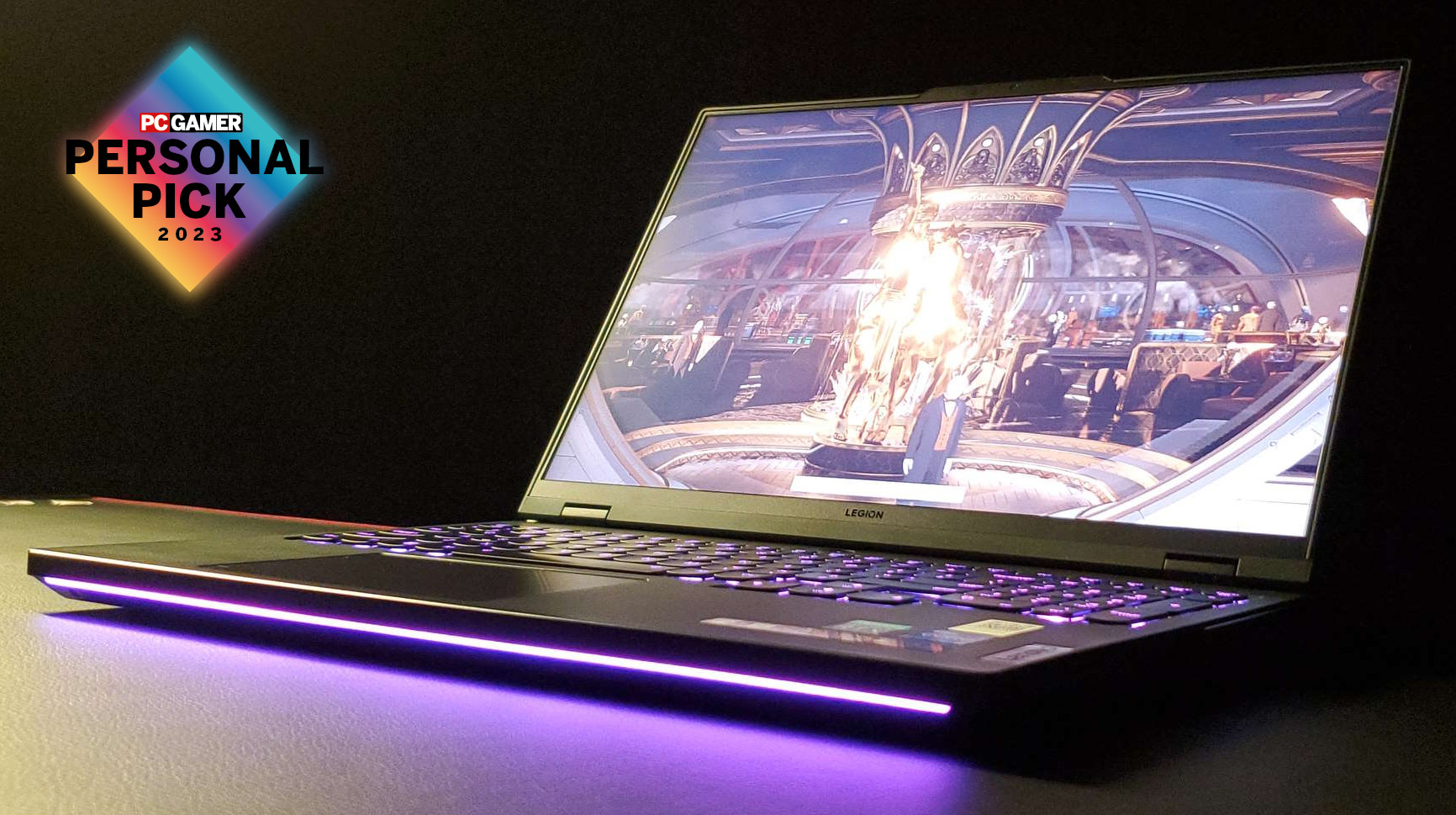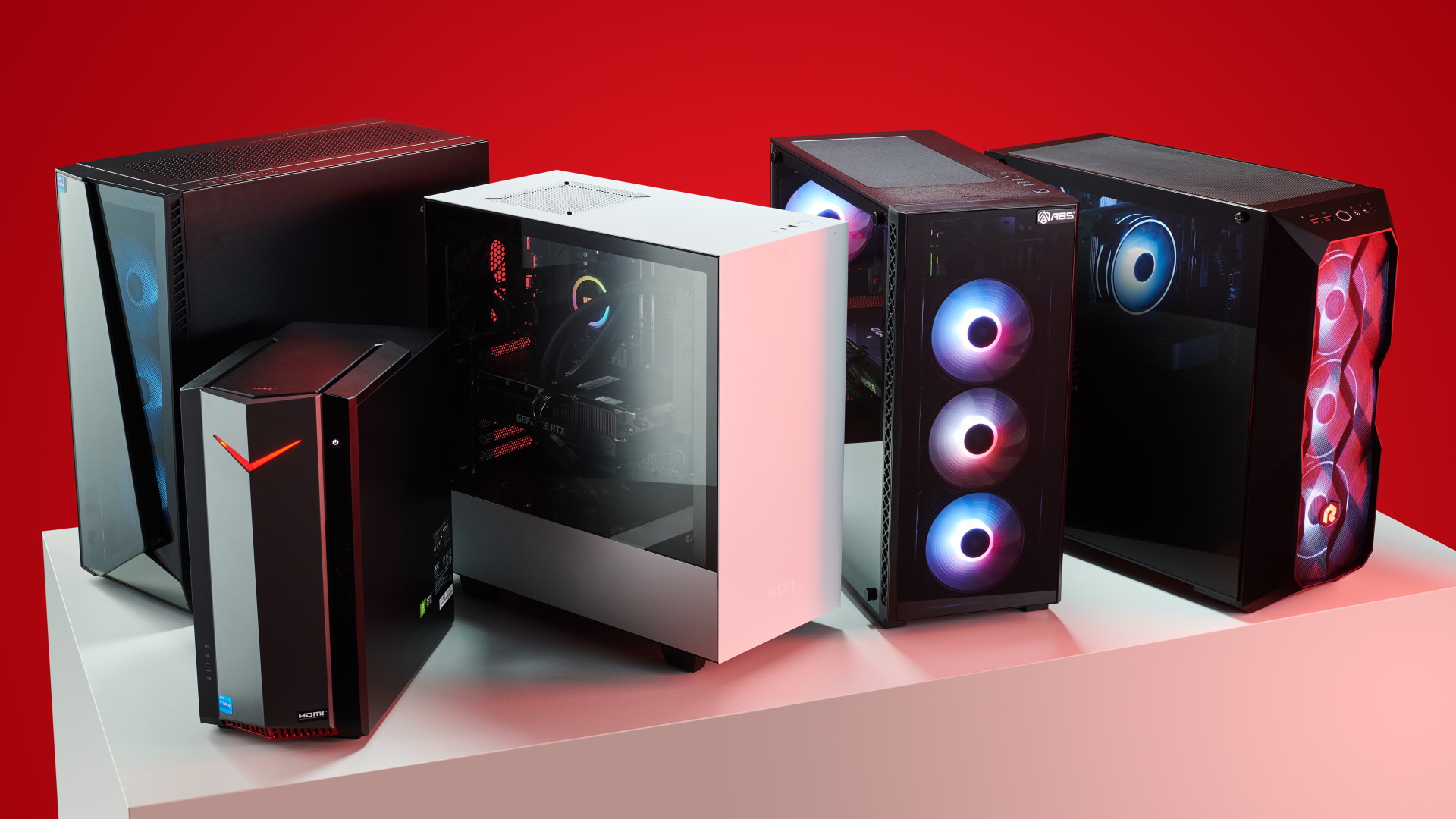The biggest hardware surprise of 2023 for me was how damned good Lenovo Legion laptops are now
I used to be team Razer, but now I think I'm part of the Legion.

I've been unhealthily obsessed with Razer Blade gaming laptops since it really nailed that matte black MacBook aesthetic over the last few years, and managed to jam high-end graphics silicon inside that sleek chassis and still make it fly. It's unhealthy because the damned things are so frickin' expensive, commanding a premium because there hasn't really been another PC machine to come close.
Now, I don't want to channel the Jeremy Clarkson/Top Gear '...until now' thing too much, but Lenovo has almost come out of nowhere this year to hit the top of my most-wanted gaming laptop list. The latest Legion machines offer a level of style, performance, and build quality that belies their relative affordability.
Compared to equivalently specced Razer Blade or Asus ROG laptops your Lenovo Legion will deliver all the same gaming and creative performance but generally for a far lower cost. Indeed, our favourite gaming laptop, the Lenovo Legion Pro 7i, has been on sale at B&H Photo for most of the year, making it all but impossible to recommend any other RTX 4080-toting notebook.
But when I say it's 'come out of nowhere,' that's doing a huge disservice to Lenovo. It's paid its dues as one of the leading office laptop makers in the world, with its ThinkPad devices dominating tray tables in half the business class seats in the air right now. It's only this year, however, that its Legion laptops have made a real splash in the gaming market.
It turns out I'm also weirdly a sucker for its smooth ceramic keycaps and the feel of the forged carbon lid.
It's not only in its value proposition where the Legion machines have staked a claim for this nerd's heart, either. I love a bit of smart-speccing and smarter pricing, for sure, but I do still have dreams, those money-no-object desires, too. That's where the sleek black Blade machines have lived for so long, but I've been testing the Legion 9i recently and it's glorious.
It's the RTX 4090 version, and I still stand by my statement that only a fool would purchase a gaming laptop with that faux top-end Ada GPU inside it, because you can get an RTX 4080 version with all the same good stuff inside it. And it really is good stuff, even if the promise of integrated liquid cooling is a bit over-enthusiastic (c'mon, it's an active vapour chamber, at best).
Mostly it's because of that glorious 1,200cd/m2 mini-LED screen, the lovely keyboard, and the absolutely rock-solid, rigid, but still impressively slim, chassis. It turns out I'm also weirdly a sucker for its smooth ceramic keycaps and the feel of the forged carbon lid. It's so damned tactile, even if it looks like some odd urban camo.
Keep up to date with the most important stories and the best deals, as picked by the PC Gamer team.

Best gaming PC: The top pre-built machines.
Best gaming laptop: Great devices for mobile gaming.
This year has been all about mobile gaming innovations for me—I've loved testing the Steam Deck OLED, have tweaked and toyed with a ton of other great handheld gaming PCs, and pulled apart my forgiving Framework 13 laptop to stick in many new, different mainboards and some with genuine gaming chops, too. But it's my affection for the Legion laptops that has surprised me the most.
Lenovo may not have 2024 all its own way, though. Razer is sure to be updating its Blade range, and I'm excited to see a 13-inch Meteor Lake Stealth. But we also know that Asus is upping its game to try and be more like Razer, switching out the plastic Zephyrus chassis for an all-metal unibody design. That's going to make the Asus Zephyrus G14 a real thing of beauty and I for one cannot wait to get my hands on that.
Though, if Lenovo releases a 14-inch Legion next year, that's a good deal less than the ROG or Razer premium, it could still get my vote. And my heart. And my axe.

Dave has been gaming since the days of Zaxxon and Lady Bug on the Colecovision, and code books for the Commodore Vic 20 (Death Race 2000!). He built his first gaming PC at the tender age of 16, and finally finished bug-fixing the Cyrix-based system around a year later. When he dropped it out of the window. He first started writing for Official PlayStation Magazine and Xbox World many decades ago, then moved onto PC Format full-time, then PC Gamer, TechRadar, and T3 among others. Now he's back, writing about the nightmarish graphics card market, CPUs with more cores than sense, gaming laptops hotter than the sun, and SSDs more capacious than a Cybertruck.

